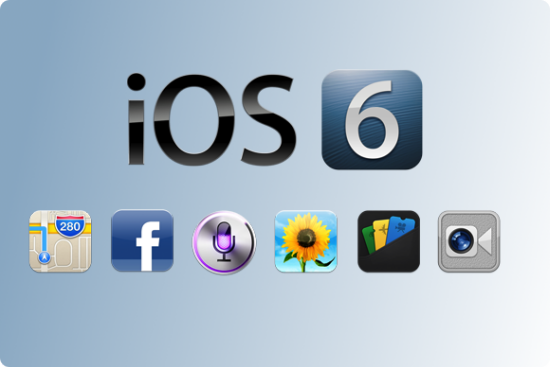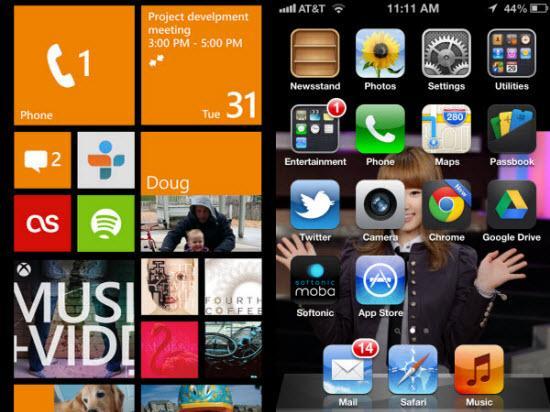
It can be said that Apple was once the world's most advanced mobile operating system. The original iPhone (and its four successors) sported a 3.5-inch touchscreen, an Internet browser, and a multitude of native apps. iOS was quite simply what many people wanted. Such is the mentality of present day Apple that iOS has redeemed a similar look and feel throughout its evolution. But this delay in updating iOS is purely intentional.
You can bet that iOS under the new direction of Jony Ive (the man responsible for the hardware designs of the iPad, iPod, iPhone, and many Mac computers) will look a bit different while retaining similar qualities of past versions. And with Apple's Worldwide Developer's Conference quickly approaching, it's a safe bet that we'll see how much influence Ive has had over the new iOS very soon.
According to 9to5mac, a few people who have seen and used iOS 7 said the new OS is redesigned, but should still be attractive to everyone who likes iOS in its current state. These same sources also claim iOS 7 is "very flat" like Windows Phone's Metro UI. iOS 7 loses "all signs of gloss, shine, and skeuomorphism seen across current and past versions of iOS," reports 9to5mac.
The word "flat" is what the rest of 9to5mac's exclusive report details setting a tone that attempts to describe the change, and why the change is favorable, but it really doesn't matter if iOS 7 has flat icons with a purple and pink polka dot theme.
Familiarity is Apple's best bet in retaining its installed base. Skeuomorphic design elements may have been the reason Apple ousted former Senior Vice President of iOS Software Scott Forstall, but you can be assured Apple's next move won't veer too far away from what has worked for them.
Setting aside the drop in stock prices, investor forecasts, strong competition from Android, and the infamous icon grid gracing iOS home screens, Apple need not diverge from its recipe which landed it $9.5 billion in profit last quarter. Pleasing a minority of customers who are looking for a drastic change simply can't be a company's priority when the majority of their customer base already appreciates current products for what they are: easy to learn and simple to manage.
Apple recently posted their first year-over-year quarterly earnings decline in almost a decade. The real kicker is Wall Street's expectation that they needed to profit more than $9.5 billion to meet investor expectations. The truth is, Apple has gotten this far with their lineup of computing devices and is sitting on a stockpile of $145 billion in cash. They may be in the process of selling bonds of $15 to $16 billion to finance a $100 billion in capital dividend to shareholders before year-end, but they have an AA+ credit rating by Standard & Poor. Apple is financially secure despite investor skepticism of their products.

And a simple theme update to iOS complete with new icons, a color scheme, and some hardware improvements is an option for the next version of iOS. Here's why.
In an article posted by AllThingsD, John Paczkowski brings to light a study by the Yankee Group which says iPhone ownership in the U.S. will exceed Android ownership by 2015 despite the dominance Google currently enjoys in the mobile market. The Yankee Group conducted a survey of 16,000 consumers over the past 12 months and asked them which smartphone they currently own and what they intend to buy in the next six months. The result was similar to the current state of mobile with half of the sample owning Android devices, and 30 percent owning an iPhone.
However, customer engagement which is driven by consumer loyalty heavily favored the iPhone. 91 percent of iPhone owners planned to buy another iPhone, with just 6 percent admitting they'd be willing to switch to an Android device. As AllThingsD's Paczkowski points out, "nine out of 10 iPhone owners are loyal to the platform."
And this is based on the current crop of devices running iOS 6, so I'm inclined to believe there really isn't any change required of iOS at all. Likewise, you can bet Apple is well aware of the consequences that will accompany a complete overhaul of iOS 7.
Apple need only look across to BlackBerry to see what happens when a completely new mobile OS is introduced to a target market with certain expectations. I love BB10, but it's unclear how people are reacting to it. Evolutionary updates to the BlackBerry OS over time may have helped usher in acceptance of the new gestures and home screen layout of BB10 OS, but that's not what the Waterloo company did. As a result, there is speculation surrounding return rates of the Q10 and Z10 exceeding sales. BlackBerry denies this and is currently seeking review by the SEC and Ontario Securities Commission.
"The face of this is the software, right? And the face of this iPad is the software," Cook told Bloomberg BusinessWeek.
Elegance, intuitiveness, and simplicity will drive the next wave of Apple products. I fail to see why Apple needs to extensively change iOS 7 for them to do well. A flat look and similar functionality might not be okay with me, but it should be enough for their loyal fans presuming the next iteration manages to retain that friendly and familiar home screen.
I just won't be convinced of the magic. Apple might not be doing as well as they once were but they aren't going anywhere, and it may very well be at the expense iOS 7.